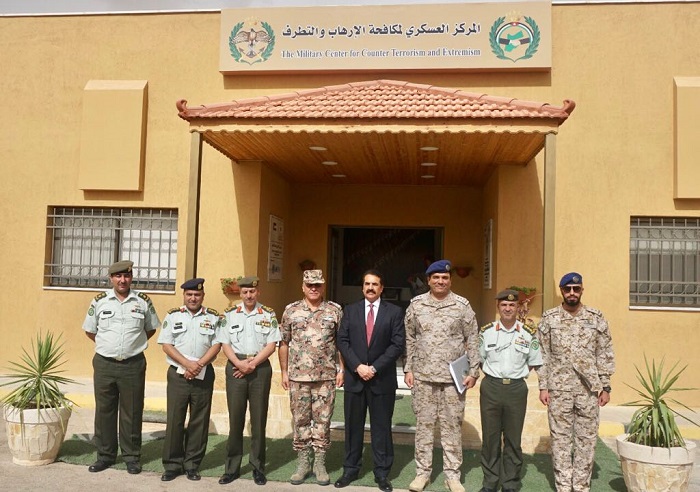Following the rise of Al Qaeda and ISIS, countering violent extremism has become an important issue in the Middle East. Throughout Jordan, various military and security groups, the intelligence community, and non-governmental organizations are all working against extremist groups. Of these organizations, women are involved primarily in NGOs and are largely excluded from military, security, and intelligence agencies. This is because women are seen as essential for preventing their children and husbands from radicalization rather than as agents capable of involvement in broader programs. Though the view of women as critical to countering extremism is an important development for Jordanian society, it originates from traditional gender roles which view women as homemakers rather than workers. While these ideas assign more value to women’s roles in Jordanian society, they simultaneously exclude women from progressing and becoming equal citizens, and do not appreciate women’s abilities and skills.
Though the recognition of their importance was an essential first step, women are still not involved in military or security operations. However, in 2000 the UN Security Council passed Resolution 1325, which encouraged countries to integrate women into security and peace operations in their efforts to counter violent extremism. In 2018, Jordan published its National Action Plan to implement this resolution, discussing initiatives to train women for leadership positions in peace processes and to create roles specifically for women in the military and intelligence communities. This plan has the potential to widen the scope of women’s roles, which currently remains limited to the home.
During Jordan’s feminist movement which began in the 1950s following the influx of Palestinian refugees, many women became involved in nonprofits, NGOs, and the education and health ministries in the government. Despite this, the disparity between the education levels of Jordanian women and their participation in the workforce is striking. While women in Jordan have a 97% literacy rate, one of the highest in the region, only 13% of the private sector workforce is composed of women. Furthermore, 70% of unemployed women have bachelor’s degrees compared with only 25% of men. This disparity demonstrates the significant preference employers have for hiring men, even though women are equally or more qualified.
The increasing prevalence of extremism, however, has influenced the perception of women in Jordanian society. During interviews with the leaders of the Al Hayat Center for Civil Society Development, the Jordanian Ministry of Culture, the Center for Community Peace at the Police Academy, and the Military Center for Countering Terrorism and Extremism, each leader discussed the importance of women in their work fighting extremism, and many even claimed that women were the most important demographic in the anti-terror fight. Each institution explained women’s significance in terms of their influence on their family members: because they have more access to their husbands and children than any other party, they naturally have a greater ability to deter their families from extremism. Women’s access to those with the highest risk of joining an extremist group makes them necessary in countering extremism. However, women’s ability to contribute to Jordan’s efforts beyond maintaining the household and monitoring their families is not recognized.
Despite this broad lack of recognition of women’s capabilities, the passage of UN Security Council Resolution 1325 provided an opportunity for Middle Eastern countries to promote women’s access to all areas of the workforce, specifically in the realm of countering violent extremism and terrorism. Jordan’s National Action Plan for 2018 to 2021 designed specific programs and initiatives to integrate women into peace, security, and military processes. The plan focuses on four main initiatives: increasing women’s participation in security and peace processes, preventing extremism internally and externally, providing refugee women with services suited specifically to their needs, and encouraging a culture throughout Jordanian society that supports gender equality. This plan is important because it addresses the tangible ways in which women will be integrated into the efforts to counter violent extremism while acknowledging the impact societal standards and norms have on women’s ability to participate in these initiatives to the fullest extent.
Currently in Jordan, women are at an interesting turning point in their pursuit of gender equality. UN Security Council Resolution 1325 laid the groundwork to actively include women in careers and aspects of society traditionally dominated by men, increasing their pre-existing indispensability in these realms, which is derived from their traditional roles as wives and mothers. Currently, women’s role in countering violent extremism reflects women’s role in Jordanian society broadly; women are viewed with importance but are largely restricted to the home. Jordan’s National Action Plan has the potential to begin the process of fully integrating women into the workforce, but as the plan is only in its second year, it is too early to be certain. Additionally, Jordan is the frontrunner of Middle Eastern countries making these changes in gender equality. Only two other countries have passed the Security Council resolution in their governments, and of those, only Iraq has written a national action plan and secured funding to implement it. Jordan is setting a regional precedent in its commitment to creating a more equal society between genders, and its successes and failures will set an example for other Middle Eastern countries to follow. Therefore, in addition to implementing its action plan to ensure women’s inclusion in programs and leadership roles, Jordan needs to continue writing and executing plans after 2021 to sustain women’s involvement. Finally, Jordan must allocate funding for this purpose both for practical reasons, and to demonstrate the country’s commitment to pursuing gender equality.
Photo: “Jordan’s counter-terrorism efforts“
